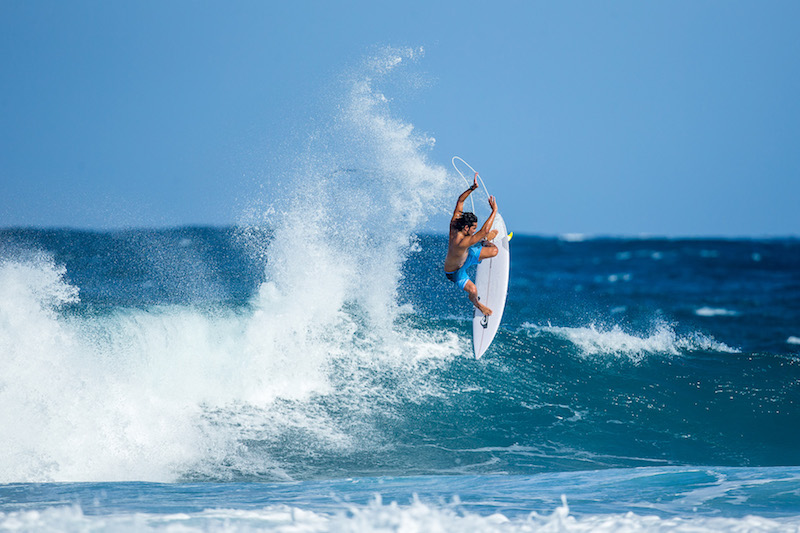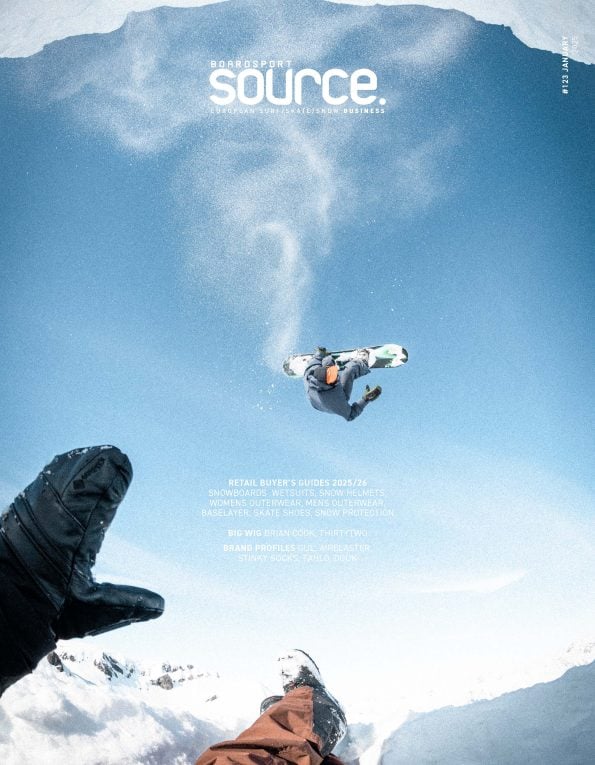
Quiksilver Announce 100 Million Recycled Bottles Ahead Of World Surfing Day
Quiksilver are proud to announce their landmark of having 100 Million plastic bottles converted into board shorts, jackets and more, through their innovative Repreve®programme. This is a huge step forward for the battle against plastic pollution and, to continue momentum, Quiksilver will be donating $10.00 of every Quiksilver Repreve® product sold on World Surfing Day to 5 Gyres, a non-profit organisation empowering action against the global health crisis of plastic pollution through science, education, and adventure.

Press Release” (London, 13th June 2018): Quiksilver’s recycling program — in collaboration with REPREVE® —hits the 100 million-bottle mark. Since its start in 2012, about 3500 tons of plastic has been repurposed into boardshorts, jackets and other garments.
Recycled polyester both gives a second life to used plastic and reduces the global footprint of a product significantly. Arguably the most environmentally impactful step of a production cycle is the creation of the raw material. Producing recycled polyester consumes significantly lower amounts of energy (45) and water (20%) than virgin polyester. Overall, the recycled fabric produces a third less greenhouse gases than conventional polyester ones.
The 100 million bottles recycled through the Quiksilver x REPREVE® program save close to 9 million litres of drinking water and provide the annual energy consumption of close to 1000 households. Each Quiksilver x REPREVE® boardshort contains about 10 recylced bottles.
Made from fossil fuels, plastic is a raw material that we encounter everyday. Only 10% of all plastic produced worldwide is currently recycled — the rest ends up in a landfill or worse, the ocean. Today, large amounts of plastic floating in the ocean are threatening both marine life and the global climate. (For more information, please click here)
“We are very excited to contribute a part to the protection of something we genuinely care about — the ocean. As surfers and snowboarders we need to think about the future, so our grandchildren can enjoy the mountain and the wave we love so much. Up-cycling plastic waste into something that is useful for us, even today, is an important step”, says Garry Wall, Global General Manager of Quiksilver.
Quiksilver and fellow Boardriders Inc. brands Roxy and DC shoes have been using REPREVE® yarn as an essential part of their product offering for more than 5 years.
REPREVE® starts the process by turning used plastic bottles into plastic flake, which is then converted into REPREVE® chips. The chips are then melted, extruded and converted into yarn that carries the same performance qualities as conventional polyester. On average, a Quiksilver boardshort using REPREVE® yarn contains about 11 recycled bottles. Currently about 50% of the range consists of REPREVE® products. Over the next few years, the brand is committed to using 100% REPREVE® yarn in all boardshorts. The snow collection will follow suit, increasing the adoption of both REPREVE® yarn and other sustainable materials.
“Recycling is one thing, reducing another,” says Wall. “100 million bottles are a milestone, now we are working on a refined strategy to fight plastic waste through innovative products and actions. There are still many areas where we need to improve and we look forward to bringing green values into all areas of our business, a responsibility that our industry as a whole needs to assume.”
On World Surfing Day (June 16th, 2018) 10$ of every Quiksilver boardshort containing Repreve fabric will be donated to 5 Gyres, a non-profit organisation empowering action against the global health crisis of plastic pollution through science, education, and adventure.
A word about micro-plastic…
Research has shown that all synthetic materials — based on recycled polyester or not — contain so-called microfibers. These tiny pieces of plastic lead to another severe form of ocean pollution that can make its way through the food chain and onto our plates. Despite multiple efforts to tackle the problem at its source, there are currently no alternatives to synthetics when it comes to producing high performance products such as boardshorts and swimwear. However, there are a few measures you can take to reduce the impact of these fibres:
- Wash your synthetic fabrics less and hand-wash if possible.
- If you’re buying a new washing machine, choose a front loader — a study found it releases less microfibers.
- If you already own a washing machine, consider installing a microfiber filter. It can’t catch everything, but it can help.
- Keep your lint filter clean so that the microfiber particles that it captures end up in the trash, not the air.
- More information can be found here.




